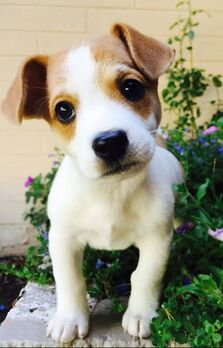Laurie Anne Walden, DVM  Coccidia are tiny parasites that live in the intestines. Coccidia infection is common in dogs and cats, most often affecting puppies and kittens. Infection can cause severe disease and even death, especially in young animals, although some infected animals have no symptoms at all. Coccidia are protozoa, which are single-celled organisms. They are not worms, and deworming medications do not remove coccidia. Different species of coccidia infect different animals. Coccidia that infect dogs and cats are in the genus Isospora. Other types of coccidia infect other mammals (including humans), birds, fish, reptiles, and amphibians. Unlike some parasites, coccidia that infect dogs and cats are not contagious to humans. Coccidia are host specific: they cause disease only in their own host species, not in animals of other species. Dogs with coccidia spread the disease to other dogs but not to cats or humans. Cats with coccidia spread the disease only to other cats. Transmission Coccidia that infect dogs and cats are transmitted through feces. Dogs and cats are usually infected by swallowing contaminated soil or other contaminated substances in the environment. They can also be infected by eating a small animal (like a rodent or insect) that serves as a transport host or vector for Isospora organisms. Coccidia in the feces are not infective right away. The life stage that passes out of the body in the stool is immature (nonsporulated). After a few hours in the environment, this stage matures to the sporulated stage, which can infect other animals. Sporulated coccidia can survive in the environment for a year.[1] Symptoms After sporulated coccidia are swallowed, they release other stages that invade cells of the intestines. Damage to the intestinal cells is responsible for the symptoms. Puppies, kittens, and adult animals with compromised immune systems are at most risk for serious illness. These are some of the symptoms:
Diagnosis Coccidia are diagnosed by examining a sample of feces under a microscope. Sometimes infected animals have false-negative test results (no coccidia seen even though the animal is infected), so animals with symptoms might need repeated fecal tests to diagnose the cause of illness. Coccidia can also be found in the feces of animals with no symptoms. Treatment Coccidia infection is treated with medication from a veterinarian. Complete treatment may take a few days or a few weeks, depending on the severity of infection. Sanitation of the environment reduces the chance of reinfection during treatment, especially for animals in group housing. Medications that remove hookworms, roundworms, and other common dog and cat parasites do not affect coccidia. Heartworm, flea, and tick preventives also do not remove or prevent coccidia. Prevention Because coccidia in stool aren’t infective for a few hours, removing feces from the environment regularly (at least once a day) helps prevent infection. Keeping cats indoors reduces or eliminates their exposure risk. Preventing dogs and cats from hunting rodents and other animals also reduces their chance of infection from transport hosts. All dogs and cats—and especially puppies and kittens—should have periodic fecal tests by a veterinarian. Reference 1. Coccidia. Companion Animal Parasite Council. Updated October 1, 2016. Accessed February 19, 2021. https://capcvet.org/guidelines/coccidia/ Photo by David Clarke Comments are closed.
|
AuthorLaurie Anne Walden, DVM Categories
All
Archives
June 2024
The contents of this blog are for information only and should not substitute for advice from a veterinarian who has examined the animal. All blog content is copyrighted by Mallard Creek Animal Hospital and may not be copied, reproduced, transmitted, or distributed without permission.
|
- Home
- About
- Our Services
- Our Team
-
Client Education Center
- AKC: Spaying and Neutering your Puppy
- Animal Poison Control
- ASPCA Poisonous Plants
- AVMA: Spaying and Neutering your pet
- Biting Puppies
- Boarding Your Dog
- Caring for the Senior Cat
- Cats and Claws
- FDA warning - Bone treats
- Force Free Alliance of Charlotte Trainers
- Getting your Cat to the Vet - AAFP
- Holiday Hazards
- How To Feed Cats for Good Health
- How to Get the Most Out of your Annual Exam
- Indoor Cat Initiative - OSU
- Introducing Your Dog to Your Baby
- Moving Your Cat to a New Home
- Muzzle Training
- Osteoarthritis Checklist for Cats
- What To Do When You Find a Stray
- Our Online Store
- Dr. Walden's Blog
- Client Center
- Contact
- Cat Enrichment Month 2024
|
Office Hours
Monday through Friday 7:30 am to 6:00 pm
|
Mallard Creek Animal Hospital
2110 Ben Craig Dr. Suite 100
|
Site powered by Weebly. Managed by IDEXX Laboratories

 RSS Feed
RSS Feed